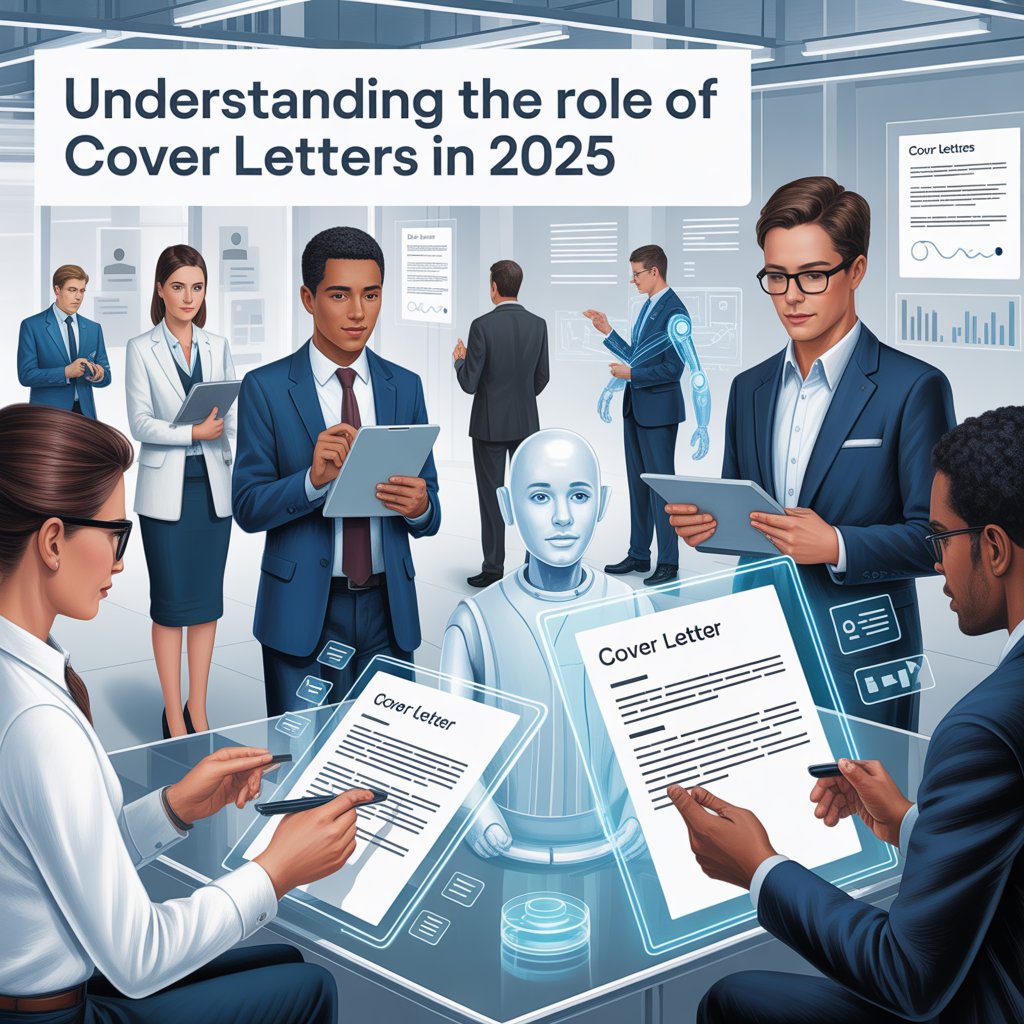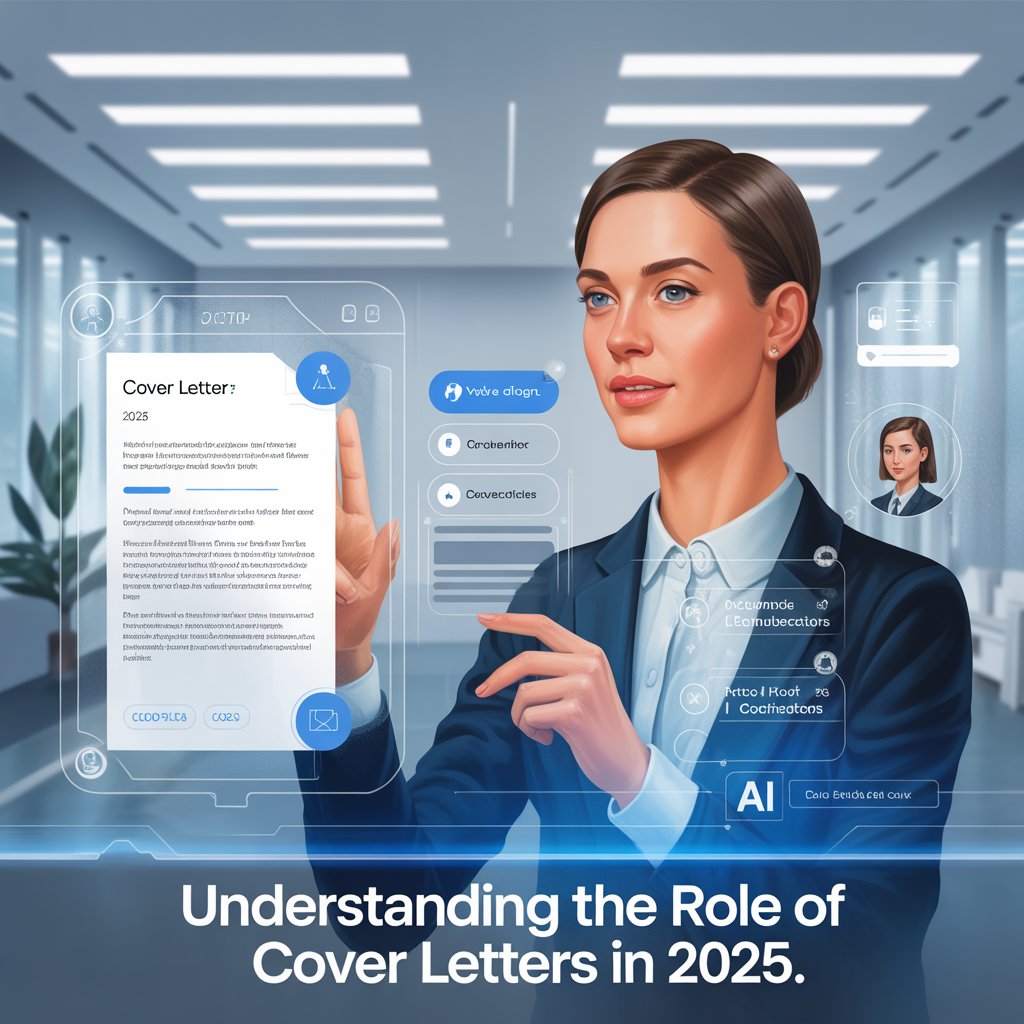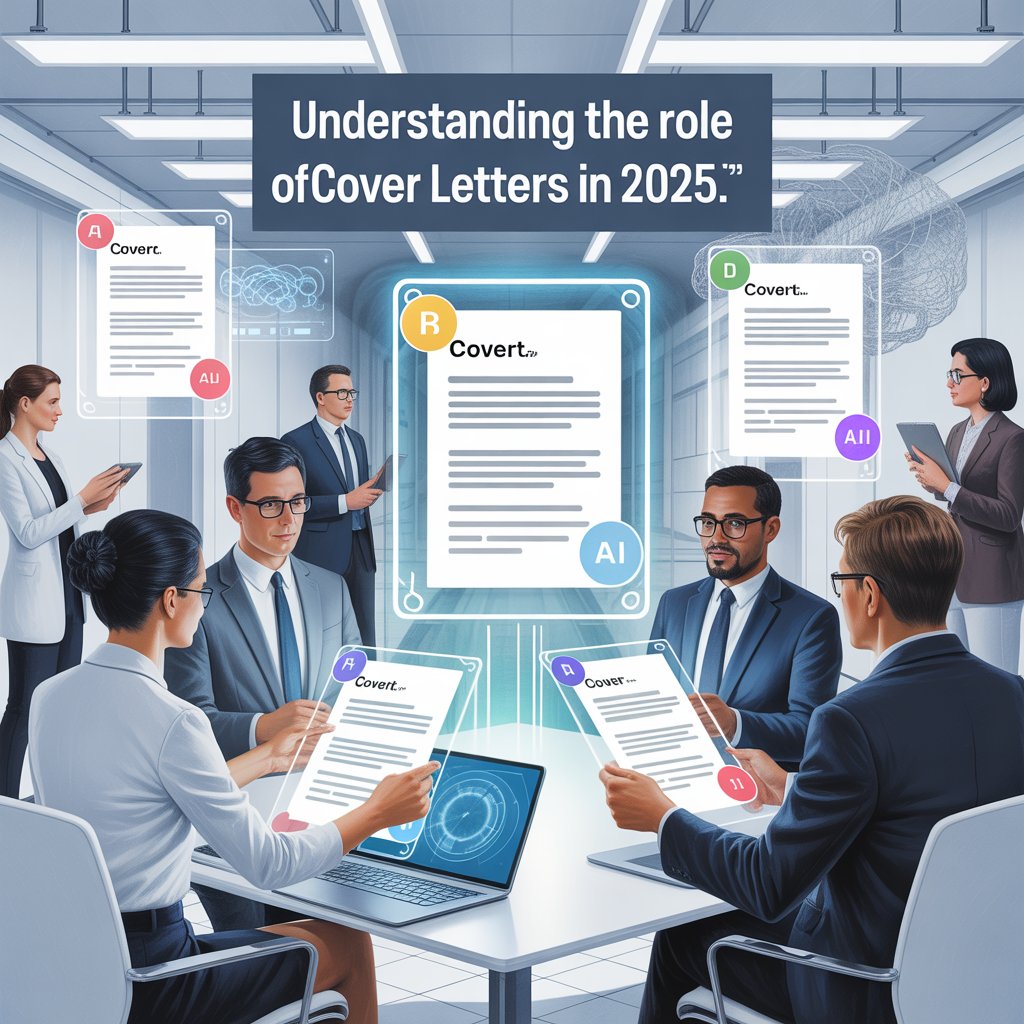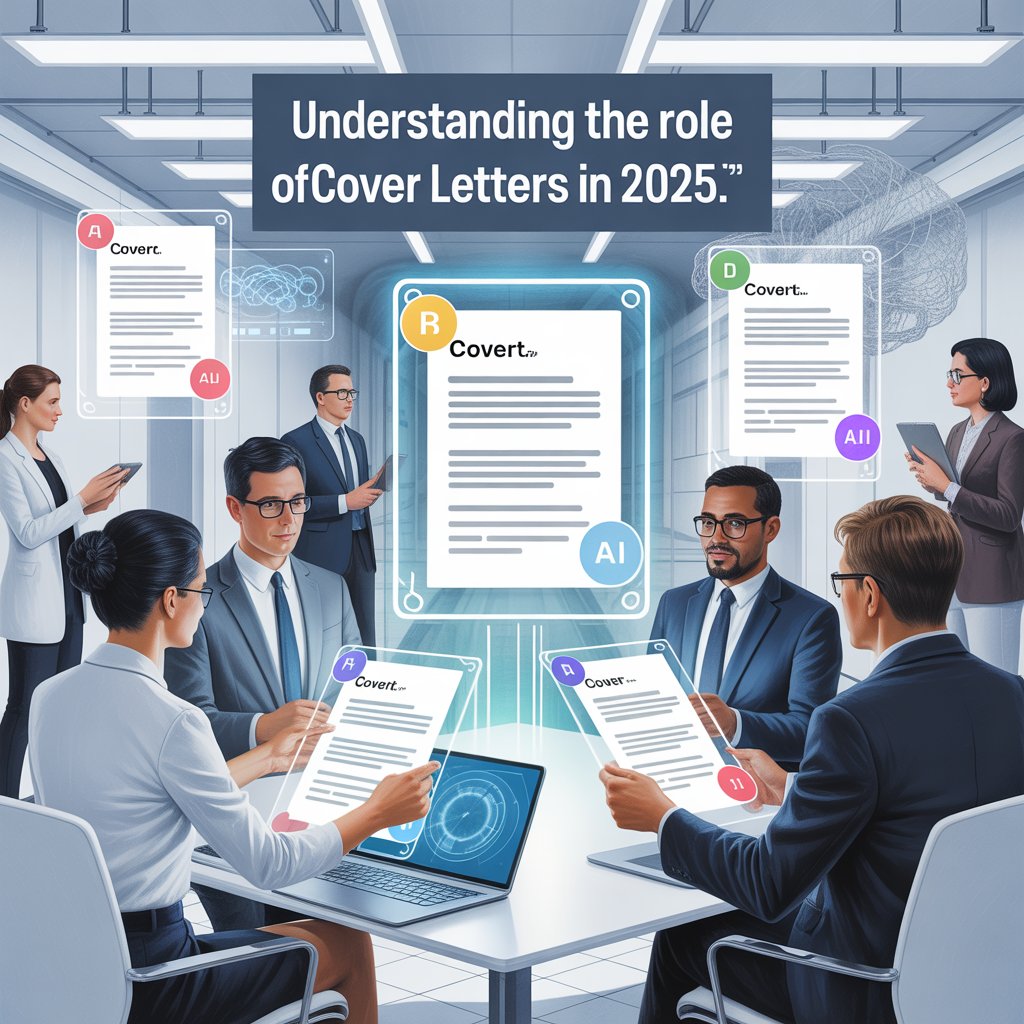In 2025, the job market is more competitive than ever, and the question of whether to include a cover letter in your application is still a hot topic. Many candidates wonder if cover letters are necessary or if they just take up valuable time. The truth is, a well-crafted cover letter can set you apart from the crowd and give hiring managers a glimpse into your personality and motivations. As you prepare your job applications, understanding the role of cover letters and how to create an effective one is essential. So, should you write a cover letter? Let’s explore this further.
Key Takeaways
- 94% of hiring managers say cover letters influence their decisions.
- Short and personalized cover letters (150-250 words) are more effective than long ones.
- Storytelling and tailoring your cover letter to the job is crucial.
- Skipping a cover letter might cost you the opportunity, especially in smaller companies.
- Alternatives like LinkedIn profiles and video applications are rising, but cover letters still hold value.
Understanding The Role Of Cover Letters In 2025
The Importance Of Personalization
In 2025, the generic cover letter is dead. Personalization is key to making a real impact. Recruiters are swamped, and they can spot a template from a mile away. You need to show you’ve actually researched the company and understand the specific role. Think of it as demonstrating genuine interest, not just going through the motions. Tailoring your message shows you care enough to put in the extra effort. It’s about connecting your unique skills and experiences to their specific needs. This is how you make your application stand out from the pile. A personalized approach to cover letter writing is essential.
How Cover Letters Enhance Your Application
Cover letters provide context that a resume simply can’t. While a resume lists your qualifications, a cover letter explains why those qualifications make you the perfect fit. It’s your chance to tell a story, highlight your passion, and address any potential gaps in your work history. Think of it as your opportunity to make a case for yourself, going beyond the bullet points. It’s about showing your personality and demonstrating how you can contribute to the company’s culture. In a world of increasing automation, a well-crafted cover letter adds a human touch to your application. It’s a chance to showcase your communication skills and demonstrate your understanding of the company’s values.
Common Misconceptions About Cover Letters
One common misconception is that cover letters are always required. While they’re often beneficial, there are situations where they might not be necessary or even appropriate. Another misconception is that they should simply reiterate the information already in your resume. A good cover letter should complement your resume, not duplicate it. Many people also believe that cover letters are outdated, but this isn’t necessarily true. While the format and content may evolve, the underlying purpose of a cover letter – to showcase your personality and explain your interest in the role – remains relevant. It’s important to stay informed about industry trends and adapt your approach accordingly. Don’t assume that a cover letter is always the right choice, but don’t dismiss its potential value either.
Do Cover Letters Still Matter?
It’s 2025, and the job application landscape keeps changing. So, do cover letters still hold weight? The short answer is: it depends. Let’s break down the factors influencing their relevance.
Statistics On Hiring Managers’ Preferences
Numbers don’t lie. While some might think cover letters are outdated, many hiring managers still value them. A significant portion still considers cover letters important in their decision-making process. It’s worth checking out the latest surveys to see the exact percentages, but generally, a good chunk of recruiters still expect to see one. It shows you’ve put in the extra effort. For example, a majority of recruiters, 57%, favor cover letters for addressing employment gaps.
The Impact Of Cover Letters On Interview Decisions
Does a cover letter actually help you land an interview? Sometimes, yes. A well-written cover letter can be the thing that pushes you over the edge. It gives you a chance to highlight skills and experiences that might not be obvious from your resume alone. Plus, it shows your personality and enthusiasm for the role. It’s a chance to make a personal connection before you even meet face-to-face.
Why Some Candidates Skip Cover Letters
Let’s be real, writing cover letters takes time and effort. Some candidates skip them because they think they’re unnecessary, or they’re applying to so many jobs that they just don’t have the bandwidth. Others might feel their resume speaks for itself. While that might be true in some cases, skipping the cover letter can be a gamble. You might be missing out on an opportunity to make a strong first impression.
It’s a risk-reward situation. If you’re applying for a highly competitive role, or if the job description specifically asks for a cover letter, it’s probably best to write one. But if you’re applying for a more general role, or if you’re short on time, you might be able to get away with skipping it. Just be sure to weigh the pros and cons carefully.
When To Include A Cover Letter
Job Types That Require Cover Letters
In many situations, a cover letter is still a must-have. Certain job types practically demand one. Think about roles that involve a lot of writing or communication, such as journalism, marketing, or public relations. These positions require you to demonstrate your writing skills from the get-go, and a well-crafted cover letter is your chance to shine. Also, if you’re applying for a job in academia or research, a cover letter is generally expected to outline your research interests and experience. It’s a way to show you’ve done your homework and are genuinely interested in the position. Remember, every job seeker should assume that a cover letter is required unless told otherwise.
Situations Where A Cover Letter Is Optional
Okay, so when can you skip the cover letter? There are a few scenarios. If the job posting explicitly says “no cover letters,” listen to them! Also, sometimes the online application system is so streamlined that there’s simply no place to upload a cover letter. In these cases, focus on making your resume as compelling as possible. Another instance is when you’re applying through a very casual channel, like a quick referral from a friend. In these situations, your resume and your connection might be enough to get your foot in the door. However, even if it’s optional, consider if a cover letter could give you an edge. It’s all about weighing the potential benefits against the time investment. A well-crafted cover letter can differentiate candidates with similar resumes, especially if customized to highlight unique experiences.
Industry-Specific Expectations
Different industries have different norms when it comes to cover letters. In more traditional fields like law, finance, and government, a cover letter is almost always expected. It’s seen as a sign of professionalism and attention to detail. On the other hand, in the tech industry or in startups, things might be a bit more relaxed. While a cover letter is still appreciated, it might not be as heavily weighted as your technical skills or portfolio. It’s always a good idea to do some research on the specific company and industry to get a sense of their expectations. Check out their website, look at employee profiles on LinkedIn, and see if you can find any insights into their hiring practices. Understanding these nuances can help you make the right call and tailor your application accordingly. Industry research is key here.
Consider this: if you’re on the fence, it’s often better to err on the side of caution and include a cover letter. A thoughtful, well-written cover letter can only help your application, while omitting one when it’s expected could be seen as a lack of effort or interest.
Crafting An Effective Cover Letter
Key Elements Of A Strong Cover Letter
Okay, so you’re actually going to write a cover letter? Good for you! Let’s make sure it’s not a waste of time. A strong cover letter needs a few things to really work. First, make sure your contact info is up top, just like on your resume. Include the date, and address it to a real person if you can find their name. “To Whom It May Concern” is basically a death sentence. The opening paragraph is super important; grab their attention right away. Don’t just say you’re applying for the job – tell them why they should care. Then, in the body, highlight the skills and experiences that make you a perfect fit. And for goodness’ sake, proofread! Typos are a major turn-off. Make sure you include your contact information at the top.
Tips For Personalization
Personalization is key. Generic cover letters are basically digital spam. Do your homework! Find out what the company values, what projects they’re working on, and what challenges they’re facing. Then, show how you can help them. Mention specific things that impressed you about the company. Tailor your language to match their tone. If they’re a fun, quirky startup, don’t write like you’re applying to a law firm. If you can, find the hiring manager on LinkedIn and mention something specific about their background or interests. It shows you’ve done your research and you’re genuinely interested. Remember, personalization shows you care.
Common Mistakes To Avoid
There are so many ways to screw up a cover letter, it’s almost an art form. First, don’t just repeat your resume. The cover letter is your chance to add context and personality. Don’t make it too long; hiring managers are busy. Keep it to one page, tops. Avoid generic phrases and clichés. “I’m a hard worker and a team player” is meaningless. Show, don’t tell. Don’t focus on what you want; focus on what you can do for them. And for the love of all that is holy, don’t lie! Exaggerations are fine, but outright lies will come back to haunt you. Also, don’t forget to tailor your message to the company. A generic cover letter is a waste of everyone’s time. Here are some common mistakes to avoid:
- Typos and grammatical errors
- Generic, uninspired language
- Focusing on your needs instead of the employer’s
A well-crafted cover letter is more than just a formality; it’s your chance to make a personal connection and show why you’re the perfect fit for the job. It’s about telling a story, highlighting your unique value, and demonstrating your genuine interest in the company.
Alternatives To Traditional Cover Letters
While a well-crafted cover letter can certainly boost your application, it’s not the only way to make a strong impression. In 2025, several alternatives offer unique ways to showcase your skills and personality.
Using LinkedIn As A Cover Letter
LinkedIn has evolved beyond a simple online resume. It’s now a dynamic platform where you can build your professional brand and network. Think of your LinkedIn profile as a living, breathing cover letter. Instead of a static document, your profile can showcase your accomplishments, skills, and even recommendations from colleagues. Make sure your LinkedIn profile is up-to-date and tailored to the types of jobs you’re seeking. Use the summary section to tell your story and highlight your key qualifications. You can even include samples of your work or links to your portfolio.
The Rise Of Video Applications
In an increasingly digital world, video applications are gaining popularity. They offer a chance to show your personality and communication skills in a way that a traditional cover letter simply can’t. A short, well-produced video can be a powerful way to introduce yourself and explain why you’re a good fit for the job. Keep it concise, professional, and engaging. Make sure to address the key points you would normally include in a traditional cover letter, such as your relevant experience and why you’re interested in the company.
Networking As A Substitute
Sometimes, the best way to get your foot in the door is through networking. Building relationships with people in your industry can open up opportunities that you might not find through traditional job boards. Attending industry events, joining professional organizations, and connecting with people on LinkedIn can all help you expand your network. When you meet someone who works at a company you’re interested in, don’t be afraid to reach out and ask for an informational interview. This is a great way to learn more about the company and make a connection that could lead to a job offer. Networking can be a great way to bypass the need for a formal cover letter altogether, as a strong referral can often carry more weight.
Networking is about building genuine relationships. Focus on providing value to others, and the opportunities will follow. Don’t just reach out when you need something; cultivate ongoing connections.
How Recruiters Read Cover Letters
What Recruiters Look For
Okay, so how do recruiters actually look at cover letters? It’s not always a deep dive, but it’s definitely worth understanding. Recruiters are primarily looking for a quick snapshot of who you are and why you’re a good fit. They want to see if you’ve done your homework on the company and the role. They’re checking for clear communication skills and a sense of your personality. It’s about making a good first impression, fast. They want to see if you can connect your skills to the job requirements. A well-written cover letter can make them take a second, closer look at your resume. For smaller companies, the cover letter’s impact is even bigger.
The Role Of Keywords
Keywords matter, but don’t stuff your cover letter with them. Think of keywords as a way to signal that you understand the industry and the job requirements. Sprinkle them in naturally. Recruiters often scan for these terms to quickly assess if you have the core skills and experience they need. Look at the job description and identify the key skills and qualifications they’re seeking. Then, weave those terms into your cover letter in a way that feels organic and relevant. It’s about showing you speak their language, not just listing buzzwords. This shows you understand the job’s requirements.
The Importance Of Clarity And Brevity
No one wants to read a novel. Keep it short and sweet. Recruiters are busy people, and they don’t have time to wade through long, rambling paragraphs. Aim for a cover letter that’s concise, clear, and to the point. Use simple language and avoid jargon. Get straight to the point about why you’re interested in the job and why you’re a good fit. A well-structured cover letter with clear paragraphs and bullet points can make it easier for recruiters to quickly grasp your key qualifications. Remember, the ideal cover letter length is around 150-250 words. Make every word count. Here’s a quick guide:
- Use bullet points to highlight key skills.
- Keep paragraphs short and focused.
- Proofread carefully for errors.
A recruiter is more likely to read a short, well-written cover letter than a long, rambling one. Make it easy for them to understand why you’re the right person for the job.
The Future Of Cover Letters
Trends In Job Applications
Job applications are changing, and cover letters are changing with them. It’s not about writing long essays anymore. The focus is shifting towards brevity and impact. Think short, sweet, and to the point. Recruiters are busy, and they don’t have time to read a novel. Make sure your cover letter length is optimal.
- More video applications are appearing.
- AI is helping with resume screening.
- Personal branding is becoming more important.
The Influence Of AI On Hiring
AI is already playing a big role in hiring, and that’s only going to increase. AI tools can screen resumes, identify keywords, and even conduct initial interviews. But don’t worry, cover letters aren’t going away completely. They’re just evolving. AI can help you write a better cover letter by suggesting keywords and improving your grammar, but it can’t replace the personal touch that makes your application stand out.
AI is changing the game, but it can’t replicate human connection. Use AI to your advantage, but don’t let it write your cover letter for you.
Evolving Expectations From Employers
Employers are looking for more than just skills and experience. They want to see that you’re a good fit for their company culture and that you’re passionate about their mission. Your cover letter is your chance to show them that. Tailor your message to each company and highlight the qualities that make you a good fit. Don’t just list your accomplishments; tell a story about how you can contribute to their success. In 2025, cover letters still matter, especially if you want to show off your soft skills.
Writing A Cover Letter That Stands Out
Storytelling Techniques
Okay, so you want your cover letter to pop. Forget just listing skills; that’s what the resume is for. Instead, think about telling a story. Not a novel, mind you, but a brief, engaging anecdote that shows off your abilities in action. For example, instead of saying “I’m good at problem-solving,” describe a time you solved a tricky problem at a previous job. What was the situation? What did you do? What was the result? That’s way more compelling than a simple statement.
Tailoring Your Message To The Company
Generic cover letters are a one-way ticket to the rejection pile. You absolutely have to tailor your message to the specific company and role. Do your research. What are their values? What projects have they been working on? What are their needs? Then, explain how your skills and experience align with those specific things. Show them you’ve done your homework and that you’re genuinely interested in working for them, not just any company. A good way to start is by looking at cover letter examples to get an idea of how to tailor your message.
Formatting Tips For Readability
No one wants to read a wall of text. Keep your cover letter concise and easy to read. Use clear, simple language. Break up paragraphs into smaller chunks. Use bullet points to highlight key skills or accomplishments. And for the love of all that is holy, proofread! Typos and grammatical errors are a huge turnoff. Think of your cover letter as a marketing document – it needs to be polished and professional. Also, remember that a strong cover letter is essential, so make sure it’s well-formatted and easy to read.
Evaluating Your Cover Letter’s Effectiveness
Feedback From Hiring Managers
Getting direct feedback is gold. If you know someone at the company, or even a recruiter willing to help, ask them to review your cover letter. Honest opinions are what you need. Did it grab their attention? Was it clear what you bring to the table? Did it make them want to learn more? If you can, try to get feedback from multiple people. Different perspectives can highlight different strengths and weaknesses. This is especially useful if you’re targeting a specific role or industry. Remember, the goal is to make your cover letter as effective as possible, and feedback is a key part of that process.
Self-Assessment Techniques
Okay, so you don’t have a hiring manager on speed dial. No problem! You can still evaluate your cover letter yourself. First, put yourself in the recruiter’s shoes. Read it quickly, like they would. Does the most important stuff jump out? Is it easy to read? Next, check for common mistakes. Typos, grammar errors, and generic language are big no-nos. Make sure you’ve tailored it to the specific job and company. Does it sound like you, or like a robot? Finally, ask yourself these questions:
- Does it clearly state why you’re a good fit?
- Does it highlight your most relevant skills and experiences?
- Does it show your enthusiasm for the role and company?
If you can answer “yes” to all of those, you’re on the right track. If not, keep tweaking it until you can.
Using Metrics To Measure Success
Okay, this might sound a little weird, but you can actually use metrics to see if your cover letter is working. Track how many applications you send out with a specific cover letter, and how many interviews you get. If you’re not getting interviews, it might be time to rethink your approach. You can also try A/B testing different versions of your cover letter. Send out one version to half of your applications, and another version to the other half. See which one gets more responses. It’s not a perfect science, but it can give you some metrics to measure success.
It’s important to remember that a cover letter is just one part of your job application. Your resume, experience, and interview skills all play a role. But a well-written cover letter can definitely give you an edge. So, take the time to evaluate your cover letter and make sure it’s the best it can be.
When you finish your cover letter, it’s important to check how well it works. Ask yourself if it shows your skills and makes you stand out. You can also get feedback from friends or use online tools to help you improve. For more tips on writing a great cover letter, visit our website and start your journey to landing your dream job today!
Final Thoughts on Cover Letters in 2025
In conclusion, cover letters still matter in 2025, but only if you take the time to craft them well. A lot of folks send out generic, boring letters that don’t catch anyone’s eye. If you want to stand out, you need to write something personal and engaging. Think about what makes you a good fit for the job and share that story. Before you hit send on your application, ask yourself if your letter is tailored to the company and if it reflects your personality. If it’s not, it might be worth rewriting. A little extra effort could be what gets you that interview.
Frequently Asked Questions
What is the purpose of a cover letter?
A cover letter introduces you to the employer and explains why you’re a good fit for the job.
Do hiring managers still read cover letters in 2025?
Yes, many hiring managers still value cover letters and use them to help decide who to interview.
Should I write a cover letter for every job I apply to?
It’s best to write a cover letter for each job, especially if the job description asks for one.
What should I include in my cover letter?
Include your skills, why you’re interested in the job, and how you can help the company.
How long should my cover letter be?
Keep your cover letter between 150 and 250 words to make it clear and easy to read.
Can I skip the cover letter if I have a strong resume?
It’s not a good idea to skip the cover letter, as it adds a personal touch that a resume doesn’t provide.
What are some common mistakes to avoid in a cover letter?
Avoid being too generic, making spelling errors, and writing too much.
Are there alternatives to a traditional cover letter?
Yes, you can use a LinkedIn profile or a video application as alternatives to a traditional cover letter.











